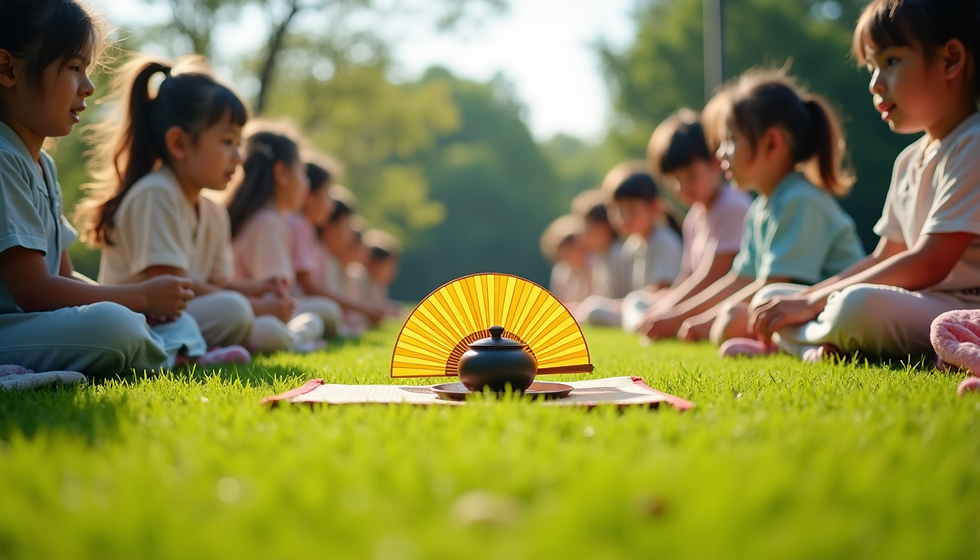The Benefits of Learning Japanese for Kids
- richasensei
- Apr 28
- 2 min read
Updated: May 5
Unlock your child's potential with the power of language! Learning Japanese boosts memory, creativity, and problem-solving while opening a gateway to Japan’s rich culture and global opportunities.

Learning Japanese at a young age offers far more than just the ability to speak a new language—it’s a doorway to cognitive, cultural, and academic enrichment. Research shows that bilingual children often outperform their peers in problem-solving, critical thinking, and multitasking. The Japanese language, with its unique scripts (Hiragana, Katakana, and Kanji), stimulates different areas of the brain, enhancing memory retention and creative thinking. Children exposed to such complex linguistic systems early on are better equipped to process abstract concepts, making them more adaptable learners overall.
“The limits of my language mean the limits of my world.” — Ludwig Wittgenstein

Beyond cognitive benefits, learning Japanese fosters deep cultural appreciation. Japan's culture—rich with traditions, festivals, stories, art forms like origami and calligraphy, and globally loved pop culture like anime—naturally captivates young learners. This exposure nurtures empathy, curiosity, and open-mindedness, helping kids become global citizens from an early age.
From a future-oriented perspective, Japanese language skills are increasingly relevant in our interconnected world. Japan remains a major player in technology, business, innovation, and international diplomacy. Mastery of Japanese can open doors to career opportunities in multinational corporations, international relations, tourism, academia, and more.
Starting young gives children the time and confidence to develop fluency while enjoying the process. With the right blend of structured lessons, fun activities, and cultural immersion, learning Japanese becomes a joyful, transformative experience that builds both linguistic and life skills.
“Learning another language is not only learning different words for the same things, but learning another way to think about things.” — Flora Lewis

To Conclude:
Learning Japanese early sets the stage for a lifetime of benefits—sharper minds, cultural empathy, and global opportunities. It’s more than a language; it’s a gateway to thinking differently and embracing the world with curiosity.

Comments